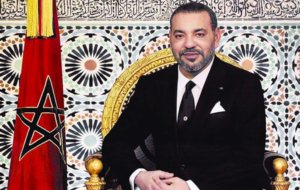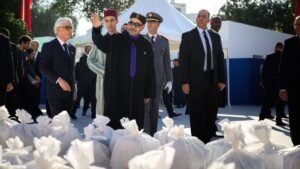Morocco Asserts Diplomatic Leadership in Western Sahara Amid Growing Global Support for Autonomy Plan

Rabat, The Gulf Observer: Morocco has emerged as a decisive diplomatic force in the evolving Western Sahara dossier, with the kingdom leveraging widespread international backing to strengthen its sovereignty claims over the territory and shape the global discourse on the conflict.
In recent years, Morocco has steadily consolidated its position, thanks in large part to the leadership of King Mohammed VI and an active foreign policy that has yielded concrete milestones on both bilateral and multilateral fronts.
A source close to the dossier told Morocco World News that the kingdom’s autonomy proposal has gained unprecedented traction worldwide.
“The royal initiative has successfully generated a genuine movement in Europe and globally in favor of the Autonomy Initiative and support for Morocco’s territorial integrity,” the source said.
The latest sign of Morocco’s strengthened stance came as the United States reaffirmed its recognition of Moroccan sovereignty over Western Sahara, a position first announced under President Donald Trump and now upheld during his second term. The US dismissed Algeria’s lobbying efforts—which aimed to reverse the proclamation—sending a clear message of unwavering support for Morocco’s autonomy plan.
In Europe, France has also joined the US in backing the Moroccan initiative. The French Foreign Ministry, in a recent statement, reiterated its “unchangeable” position on Moroccan sovereignty, echoing earlier remarks from President Emmanuel Macron and solidifying Paris’ alignment with Rabat. The reaffirmation followed a high-level diplomatic meeting between Moroccan Foreign Minister Nasser Bourita and his French counterpart Jean Barrot in Paris.
These diplomatic affirmations are part of a broader international trend. Over 20 European countries, including Germany, Spain, the Netherlands, the Czech Republic, Finland, and Austria, now regard Morocco’s Autonomy Plan as a serious and credible solution to the decades-long Sahara conflict.
At the United Nations Security Council, Morocco’s influence continues to grow. During a recent closed-door briefing, UN Envoy Staffan de Mistura reportedly acknowledged the momentum behind the Autonomy Plan, calling for detailed discussions on the initiative. He also referenced US Secretary of State Marco Rubio’s commitment to supporting “genuine autonomy” and a “mutually acceptable solution.”
A Moroccan diplomatic source described April’s annual UNSC briefing—traditionally a tense moment due to UN deadlines—as a moment of strength for the kingdom:
“Morocco sets a proactive agenda, leads discussions, and creates momentum,” the source said. “It is now a time when Morocco demonstrates its diplomatic leadership.”
With robust international endorsements, Morocco is no longer passively awaiting a UN resolution. Instead, it is actively steering the narrative, mobilizing allies, and reinforcing the autonomy initiative as the only viable path to a lasting solution. The kingdom’s strategy, rooted in innovation, pragmatism, and firm sovereignty, continues to redefine the diplomatic landscape of the Western Sahara issue.


